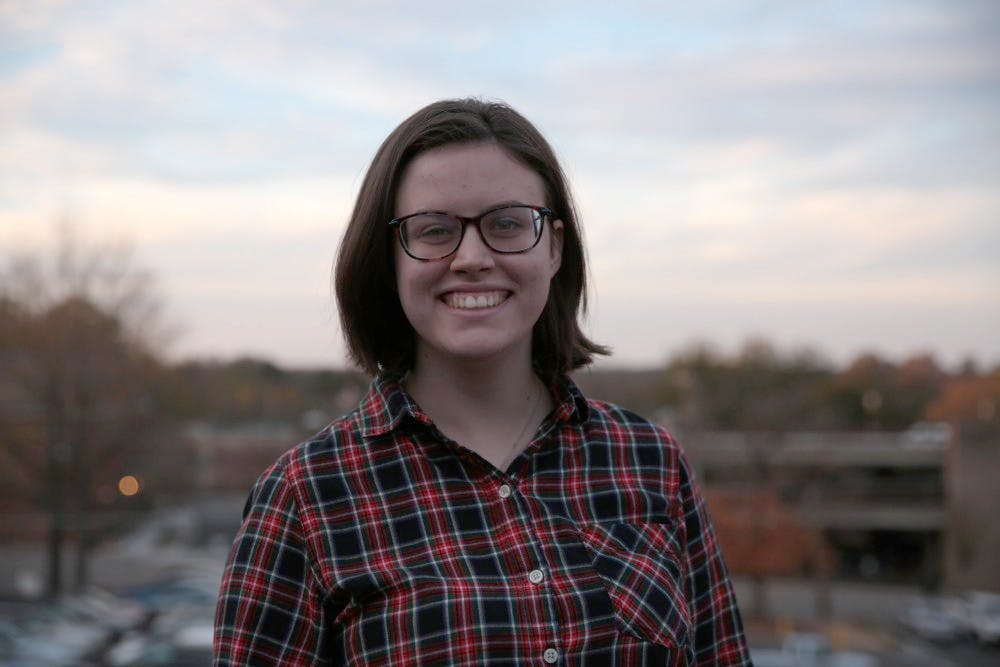CORRECTION: An earlier version of this column incorrectly stated that last year's meetings between Chancellor Folt and DTH editors were off the record. They were on the record. The column has been updated with this information, and The Daily Tar Heel apologizes for the error.
I doubt I’ll ever be able to think of outgoing Chancellor Carol Folt’s administration without thinking of this anecdote: an editor at my internship this summer pulled me aside one day, grinning, to look at a UNC official’s LinkedIn page. Under his job experience for his role at UNC — senior director for public records — it read “eliminated open requests from student newspaper, Daily Tar Heel.”
Not filled. Eliminated.
“You must have pissed them off,” the editor said.
Now, there’s a good chance Gavin Young’s wording on LinkedIn was innocent. “Eliminated” is, technically, an accurate way to describe filling public records requests, though I’m not sure why someone who heads an office that supposedly streamlines access to information would choose the phrase. But based on everything I’ve seen for the past four years as a writer and editor that covers UNC, I don’t think it is.
I’m reminded of the two major public records requests we’ve received this year. The former, about the messages sent to University administrators the night of and morning after Silent Sam came down, was answered the Friday that Hurricane Florence was bearing down on us. The latter, for the emails sent to UNC for public comment on Silent Sam’s future, arrived in two waves. We received 2,000-plus pages of emails on the last day of classes for the fall semester, and another 500 pages the next day. The Daily Tar Heel’s last day of print (and work) for each semester is always LDOC.
This isn’t a post-Silent Sam phenomenon either. I remember former enterprise editors sending back their finally-filled FOIA requests months after they graduated. The Daily Tar Heel has an ongoing lawsuit against the University regarding access to public records regarding sexual assault cases on campus; I’ve inherited this case, which is being reviewed by the North Carolina Supreme Court, from two editors. I fully expect to pass it on to my successor.
I’ve met Chancellor Folt once, after I was named editor-in-chief. Last year, the EIC and University editor had monthly meetings with Folt; they were largely unproductive, and we didn’t strongly pursue having them again this year. When our general manager, who served as the paper’s editor from 1997-98, told us that historically the chancellor has stopped by the DTH to have frank conversations with editors, I laughed.
I — and many students — have been rendered cynical by the administration's unwillingness to listen.




